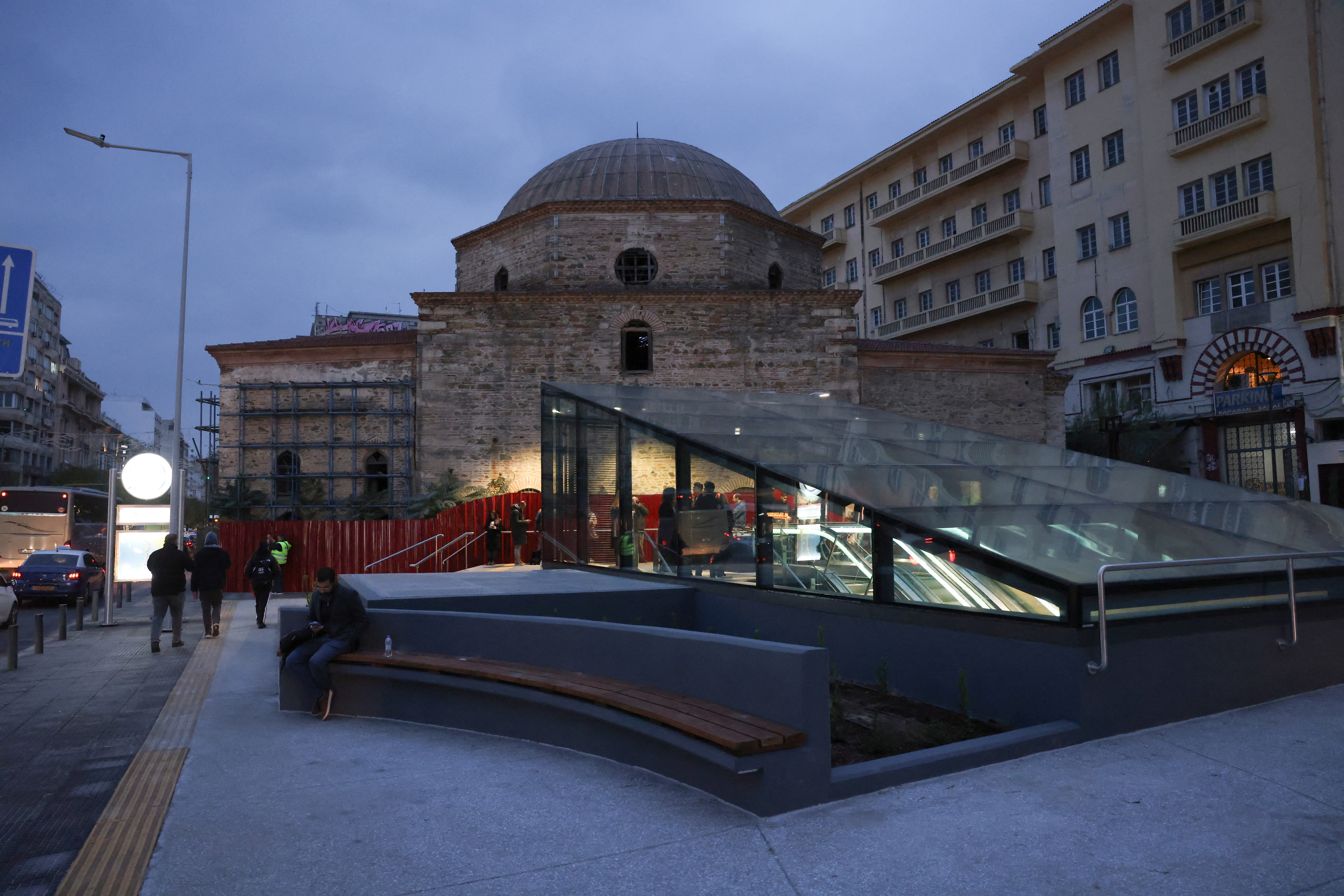A metro system in Greece’s second city Thessaloniki officially opened on Saturday, its stations displaying the same ancient artifacts that nearly derailed the project’s completion.
During construction, which began in 2006, workers discovered a Byzantine-era market, a Roman cemetery and other treasures of the city’s long and varied history.
The finds stalled the metro’s progress and raised questions about how the city would modernise while protecting its rich past. The answer was to blend the two by displaying the uncovered artefacts for modern-day commuters to enjoy.
“This is not just a public works project, which is incredibly important for the city. It is also a museum,” Greek Prime Minister Kyriakos Mitsotakis said before visiting the Venizelou station for a private tour on Friday.
“It’s probably unique in the world. We will go through an underground museum to reach the train.”
The metro took nearly 20 years to complete, in part because of funding problems during Greece’s 2009-2018 debt crisis. It is the first such system in Greece outside Athens.
Builders had to dig deeper than originally planned – up to 31 metres (102 feet) – to make sure the tunnels ran below the archaeological findings, according to the project’s contractor.
“It is an opportunity for Thessaloniki to become a second Rome, in terms of antiquities,” said Melina Paisidou, one of the archaeologists to discover the relics underground.



